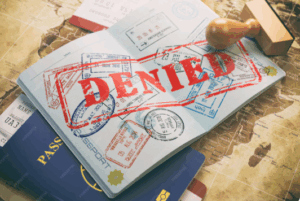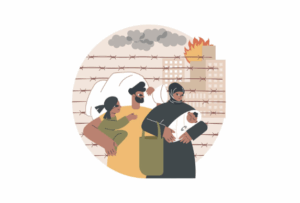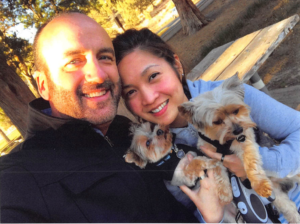The Untold Truth About Asylum Applications: Why Most Get Denied and How to Avoid It
For asylum seekers in the USA, nothing is harder than reliving your past, telling your story in detail, waiting for months or years, only to hear that your application didn’t meet the standard. It feels unfair. It feels personal. And for many, it feels like the end of hope.
But here’s the truth most people don’t hear: the majority of asylum cases in the U.S. get denied not because the harm wasn’t real, but because the evidence didn’t match what United States asylum law requires. The system is complicated, the rules are strict, and even one mistake can be enough to lose protection.
In this article, we’ll share the untold truth about why most applications fail, what officers and judges really look for in asylum in the US, and how you can avoid the pitfalls that leave so many strong claims denied.
The Harsh Reality: Why Denials Are So Common

When you are claiming asylum in the USA, you have to prove two things:
- That what you faced qualifies legally as “persecution.”
- That persecution happened (or will happen) because of your race, religion, nationality, political opinion, or membership in a particular social group.
If either piece is missing, your case can collapse. This is why many asylum seekers in the United States are denied even after telling powerful stories.
Misunderstanding What Counts as Persecution
One of the biggest reasons applications fail is because applicants misunderstand what the law calls “persecution.”
Persecution isn’t just discrimination or harassment. It means serious harm: imprisonment, torture, threats to your life, or other severe restrictions on your freedom. And it must be connected to one of the five protected grounds under United States asylum law.
For example:
- Being attacked for participating in political protests may qualify.
- Being insulted or mocked at work likely will not.
- Losing your job due to bias might not qualify, unless it’s part of broader systemic persecution.
This distinction is critical. Without tying your harm to the protected grounds, the officer may conclude you don’t meet the requirements for asylum in the USA, no matter how unfair your treatment was.
The Missing Nexus: Failing to Show Why You Were Targeted
Another untold truth: many asylum applications fail because the “nexus” is missing. Nexus is the legal term for proving why you were harmed.
If you were attacked, was it because of your political opinion? Your religion? Your nationality? Or was it random violence?
Judges and asylum officers look closely for this link. If they don’t see it clearly in your evidence, they will likely deny your claim. Many asylum seekers in the US lose cases not because their harm wasn’t real, but because they didn’t connect the dots.
Weak or Missing Evidence

We’ve seen too many strong stories fall apart because there wasn’t enough evidence to back them up. For asylum seekers in the USA, this is the difference between being believed and being denied.
Evidence can include:
- Medical reports showing injuries.
- Police records documenting arrests or threats.
- Witness statements from family or neighbors.
- Country condition reports prove others like you face similar persecution.
- Membership proof (political party cards, religious certificates, photos at demonstrations).
Without these, officers often decide your testimony isn’t enough. This is why cases that could succeed fail in practice.
Country Conditions: The Bigger Picture Most Miss
Another truth about asylums in the US is that judges rarely look only at your personal story. They want to see how your experience fits into the broader context.
If you’re applying for asylum in the USA, your story should be supported by evidence that your group is targeted in your country. That’s why country reports from the State Department or human rights groups are critical.
Too many applicants leave this out, and their story is seen as isolated. But when your claim is backed by evidence that persecution is systemic, your case becomes stronger.
Filing Too Late
The law requires that you apply for asylum within one year of arriving in the U.S. Unless you qualify for an exception, late filing is one of the fastest paths to denial.
We’ve met people who asked, “Can I apply for asylum in the USA after one year?” The answer is yes, but only if you can show changed circumstances (like worsening conditions in your country) or extraordinary reasons (such as trauma or illness). Without that, the one-year deadline closes the door for many asylum seekers in the US.
The Role of Fear of Future Persecution
Not everyone applying has scars or past arrests. Some left before the harm escalated. In those cases, you can still win protection by proving a well-founded fear of future persecution.
But here’s the catch: you must show why your fear is reasonable. Officers will ask, “If nothing has happened to you yet, why do you believe it will?”
Evidence matters here: threats you received, reports of others in your situation being harmed, or proof of ongoing government surveillance. Without this, fear alone may not meet the standard.
The Untold Truth: It’s Not About Deserving, It’s About Proving

One of the hardest things we tell asylum seekers in the USA is this: the system doesn’t protect everyone who deserves it. It protects those who can prove it.
That means your story has to be:
- Clear
- Consistent
- Corroborated
- Connected to a protected ground
Without these, your claim is at risk, no matter how real your suffering.
How to Avoid Denial
So how can you avoid the pitfalls that deny so many asylum seekers access to the United States? Here’s what we’ve learned guiding people through this process:
- Document everything. Collect medical records, police reports, and any evidence that shows what happened.
- Gather witness statements. Written affidavits from people who saw the harm carry weight.
- Use country reports. Show how your story fits into the broader persecution in your homeland.
- Prepare your testimony. Consistency matters. Practice telling your story clearly and accurately.
- File on time. Don’t miss the one-year deadline.
- Get guidance. Understanding the details of the United States asylum law can mean the difference between approval and denial.
Final Thoughts: Turning Fear Into Protection

For anyone seeking asylum in America, the process is daunting. You’re being asked to prove the worst moments of your life to strangers, with your future on the line. It feels overwhelming, and too often, people walk away denied because they didn’t know what the law required.
But it doesn’t have to end that way. With preparation, the right evidence, and a clear link to the protected grounds, you can turn your personal truth into a strong legal claim.
At Passage Immigration Law, we walk beside you through every step of the asylum process in the USA. From your first question about how to apply for asylum in the USA to your final hearing, we help you avoid the mistakes that deny so many cases. Because your story deserves more than a denial. It deserves to be heard, believed, and protected.
Disclaimer: This article offers general legal information, not legal advice. Do not rely upon this information without seeking legal counsel. If you need legal advice, you may contact us directly to speak with an attorney. We disclaim all liability with respect to actions taken based on any information presented. Every case is different, and outcomes will vary depending on the unique facts and legal issues of your case.







